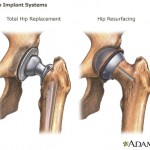
According to the New York Times, the FDA has also recommended that patients who received the Riata defibrillator lead — a wire that connects a defibrillator to a patient’s heart — get X-rays or other imaging to check for problems.
The FDA has drawn a good deal of criticism based on its approval of the Riata lead through a policy that allows medical devices to go on the market without medical testing, based on their ostensible similarity to previously approved devices.
Consumer watchdogs say that policy has allowed a number of dangerous devices to be sold to unwitting patients.
Other examples are:
— The DePuy all-metal hip implant, recalled in 2010 because of its high early failure rate and tendency to leave toxic metal debris in patients’ bodies.
— Vaginal mesh implants, used to treat urinary incontinence and pelvic organ prolapse, which have generated thousands of lawsuits from women who claim the devices failed and injured them. A jury recently awarded the plaintiff $5.5 million in the first such case to go to court.
Defibrillators are supposed deliver a jolt of electricity to interrupt a potentially fatal heart rhythm.
St. Jude stopped selling the Riata lead in 2010. Internal wires have been shown to break through the protective outer coating and cause unintended shocks. Defective leads may also prevent the defibrillator from working when needed.
In March, according to the New York Times, a prominent researcher published a study claiming the Riata lead played a role in some 20 deaths.
You should consult with a doctor if you have any ongoing symptoms or health concerns from a DePuy hip or transvaginal mesh implant. If you have significant injuries, you should also consult with a DePuy hip or transvaginal mesh lawyer to discuss your legal rights.
See the story here:
